Video shines light on Chinese EV company’s success in Australia
Robots carrying bottles of water greet customers at this futuristic EV showroom in Sydney. Now, the clip has gone viral online – and it’s bad news for Tesla.
A video of one of BYD’s hi-tech showrooms – complete with robot servers – has gone viral on social media as sales for the Chinese electric vehicle company soar in Australia while its US competitor Tesla dives.
The video shows colourful light displays, moving display screens and robots delivering bottles of water to customers at BYD’s futuristic megastore in Alexandria, Sydney.
“It’s very unlike the traditional dealership experience,” says a voice behind the camera.
The clip, filmed by carsguide.com.au last year, went viral online this week after being re-shared on X by a user who pointed out how Chinese EVs were thriving in Australia where there are “no tariffs”.
The post attracted a mixed reaction online, with some praising BYD’s “impressive” tech products and others accusing the brand of being a “cheap Chinese version” of its competitors.
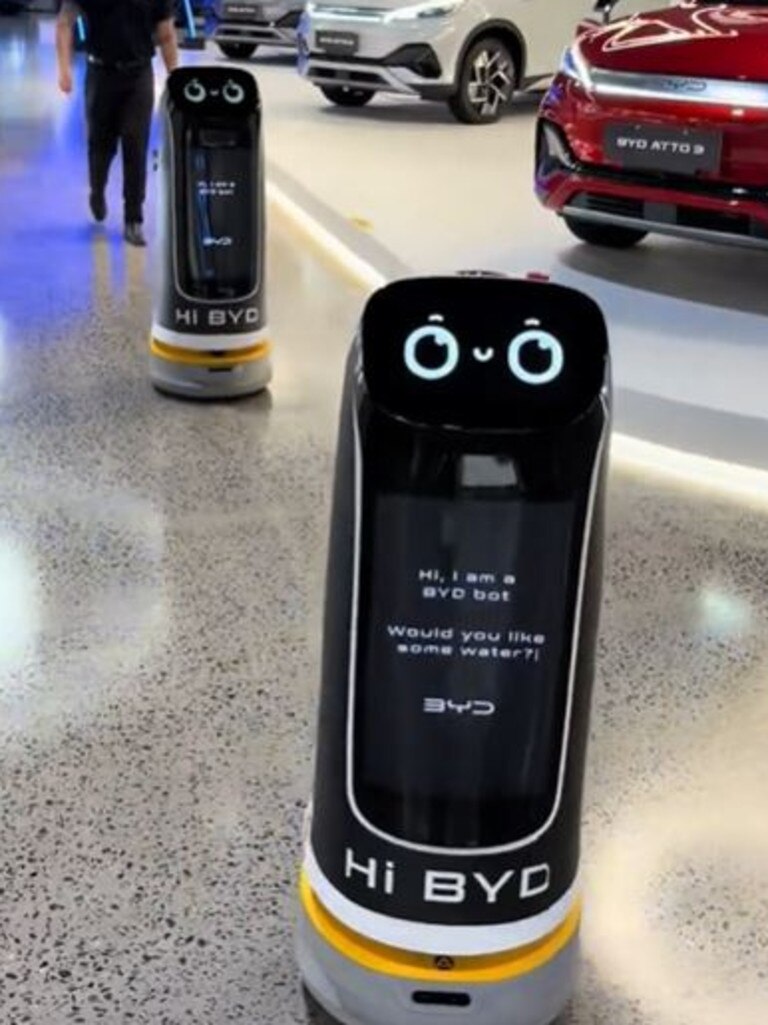
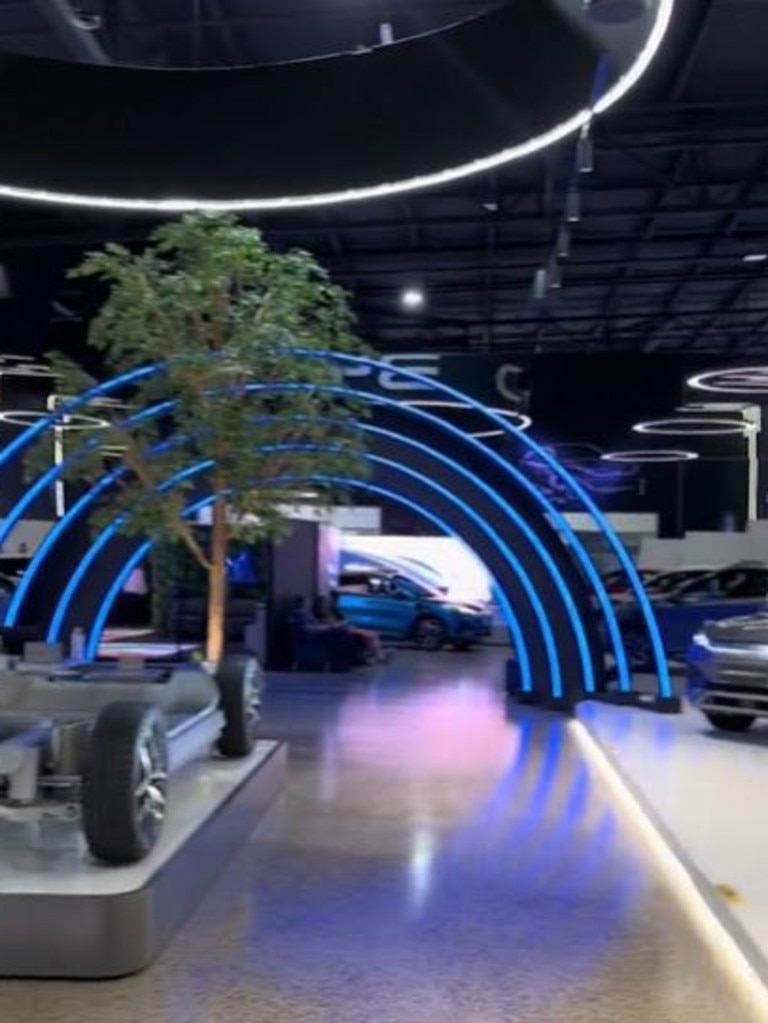
According to Mike Costello, corporate affairs manager at Cox Automotive Australia, the video of the company’s showroom speaks to BYD’s push to change perceptions that Chinese EVs could be seen as “cheap” and of lower quality.
“I think these sorts of showroom novelties, is to get people seeing (BYD) as a hi-tech player. It’s not just about making cheap vehicles. It’s actually making high-quality and hi-tech ones as well,” he told news.com.au.
Mr Costello believes efforts to change Aussie perceptions are working, acknowledging BYD – which only entered the Australia market in 2022 – has managed to capture trust among Aussies.
“Because BYD is so enormous and because it’s using familiar dealerships, and it has a strong presence in Australia with good warranty support … I think it’s done a good job of positioning itself as a Chinese brand that’s really here for the long haul, that people can trust.”
The latest figures point to BYD’s success.
According to VFACTS, the company sold 4,811 vehicles in Australia this March – a 196 per cent increase from March last year.
Meanwhile, Tesla – whose Model Y remains Australia’s best-selling EV – took a 53 per cent hit in sales in March, according to the Electric Vehicle Council (EVC).
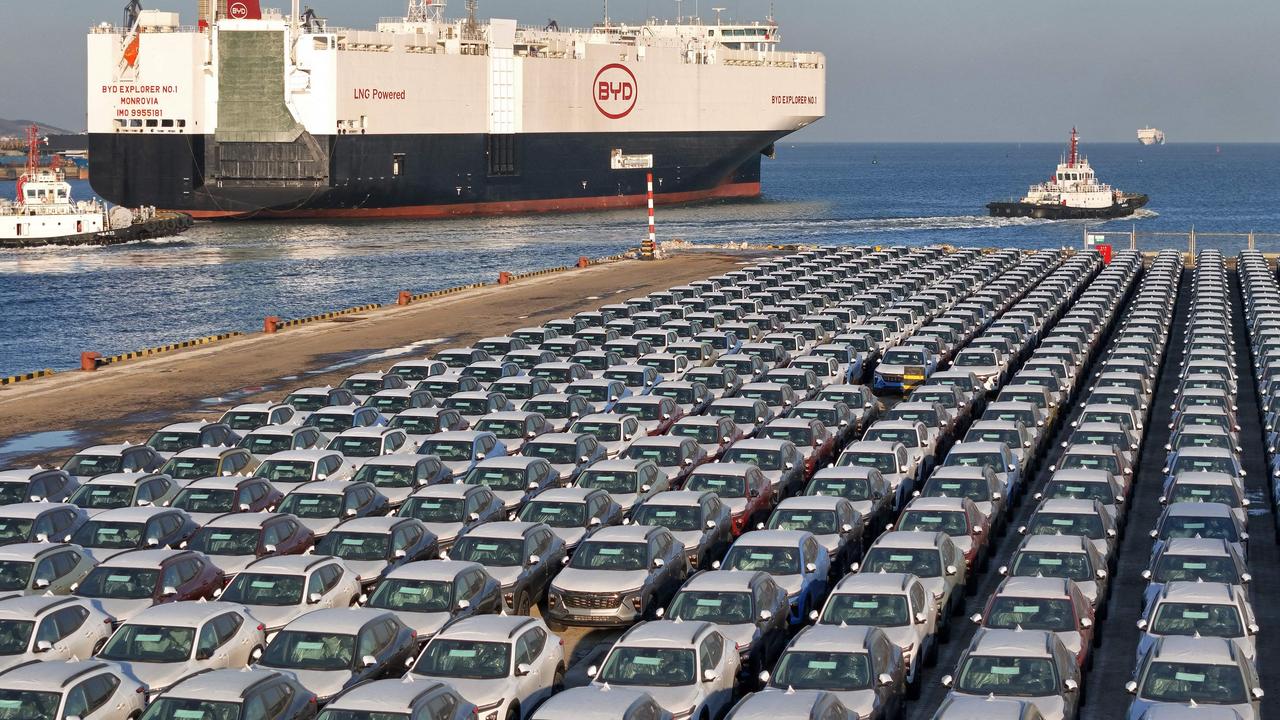
Mr Costello said cost is one major reason behind the surge in Chinese EVs – which made up over 80 per cent of all EVs sold in Australia in 2024.
“The cheapest BYD now starts for $30,000,” said Mr Costello, referring to the BYD Dolphin.
“As you go through the range, BYD and MG and all these Chinese brands will make a lot more expensive EVs, but they’re always cheaper than their direct competitors from Japanese or Korean or European or American brands.”
For example, a BYD Seal starts at $46,990, while it competitor, a Tesla Model three, starts at $54,900.
Chinese companies also offer a wider range of models.
“Simply put, they’re making more of them than anybody else, and they’re doing a really good job of it,” Mr Costello said.
“Not everybody is after an EV now, but if you are after an EV now, and you’re doing a short list, there’s no doubt that there’s going to be some Chinese products on there, whether it’s a big SUV or whether it’s a small city hatchback or whether it’s a sporty sedan.”
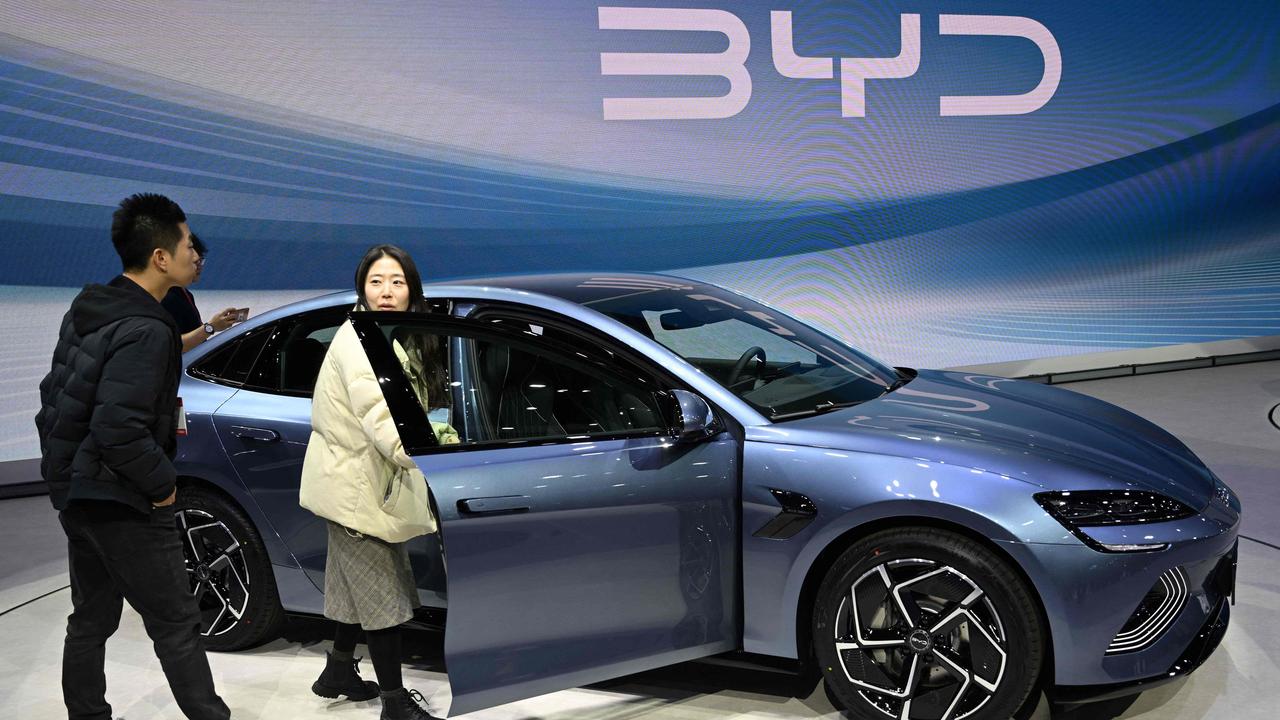
Tesla takes a dive
According to the EVC, just 2,829 Teslas were sold in March in Australia, compared with 6,017 in the same month in 2024.
Across the first three months of the year, Tesla sales in Australia are down almost 60 per cent.
It comes as the EV market suffered a slow start to the year, with just 17,937 EVs delivered in Australia during the first quarter of 2025 – a 29.6 per cent decrease from the same period last year.
Mr Costello said growing competition is one reason behind Tesla’s drop in Aussie sales.
“Five years ago, Tesla was the only name in town if you wanted an electric vehicle. There were always a couple of others but really, EV was synonymous with Tesla. They were ahead of the curve,” he said.
“Then in the last couple of years, you’ve just seen these Chinese manufacturers enter the market as the strongest competition. There were some exceptions for example, Kia, the Korean brand, is making very good EVs, but by and large, it’s the Chinese brands that are really entering the market at scale to compete with Tesla.
“And so Tesla now finds that it’s got much harder competition than it’s ever had before, and it has to answer that with compelling prices, which is why it’s cut its prices several times.”
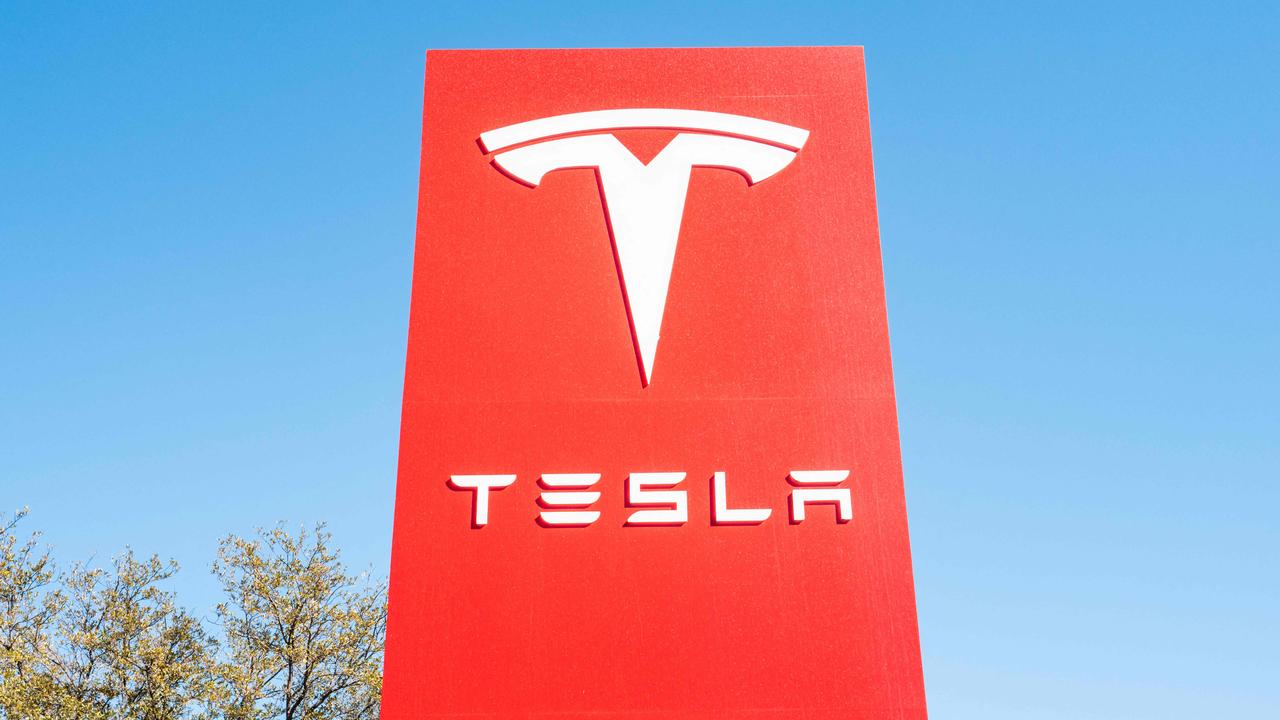
Tesla’s drop in sales can also be attributed to the launch of its updated model Y, arriving in Australia in May.
“Lots of people are going to just wait until that arrives to put their hands in their pocket,” said Mr Costello.
Globally, Tesla’s sales have also taken a hit.
Quarterly sales have fallen 13 per cent – their lowest level in three years – amid growing backlash over controversial owner Elon Musk.
“There’s no doubt that Elon Musk has been a controversial figure. We’ve all seen in the news of a lot of Tesla adopters not necessarily aligning with Elon’s views... But I think it’s important to wait for the whole year to go by to sort of see where the brand is sitting,” said Mr Costello.
“But there’s no doubt that it’s a lot harder for Tesla to operate today than it was a couple of years ago, when it was kind of the only name in town,” he added.
‘Avalanche’ of Chinese cars coming to Australia
Mr Costello said Australia will be hit with “an absolute avalanche of Chinese products” across the rest of the year.
“China’s EV sector is many, many years ahead of everybody else. And so as a result of that, you’ve got this absolute avalanche of Chinese manufacturers seeking new markets to sell their cars into, and a lot of them look to Australia as a really good first step, because unlike America and Unlike Europe, Australia doesn’t have any trade barriers.
“There’s no tariffs that we put on Chinese cars. We’re an open market. We’re a very established market. There’s lots of dealers here who are happy to sell vehicles under agreement, and geographically, it’s quite close to Asia as well. So Australia really is kind of the first step for a lot of these brands.”
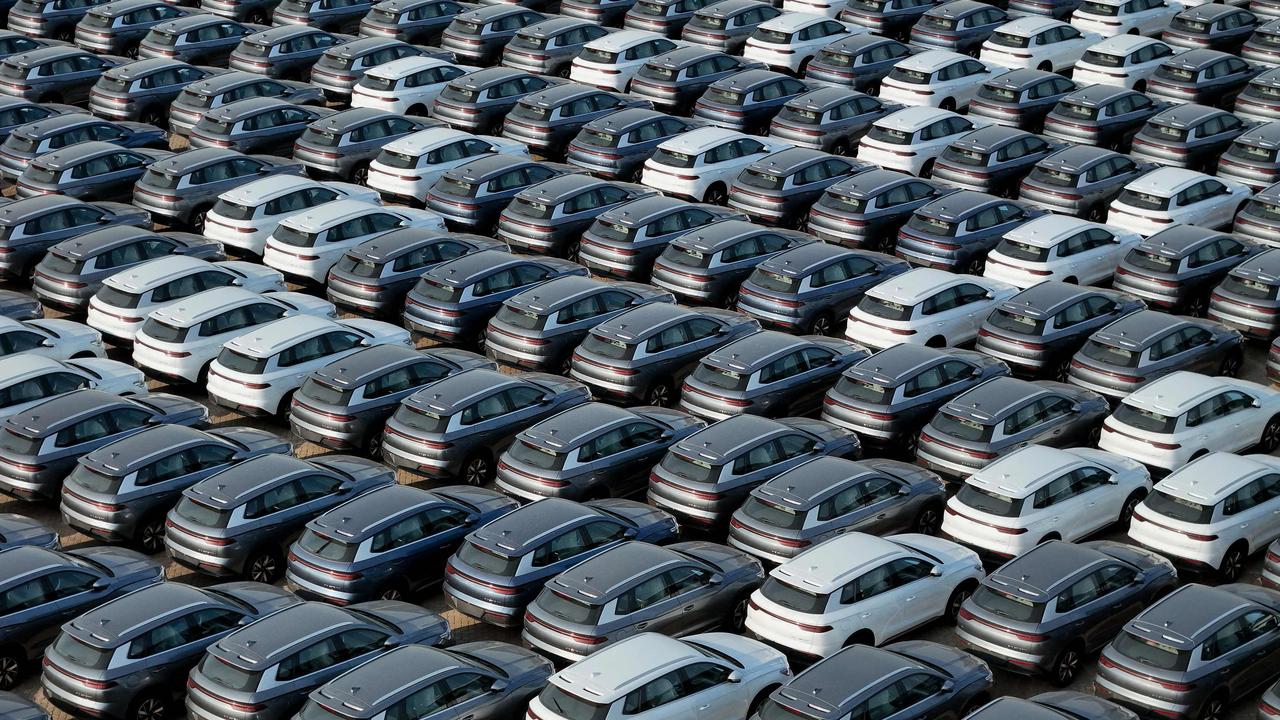
“There are 20 different Chinese brand names now selling cars in Australia, and we are forecasting that this year, about one in five of all cars sold in Australia will be made by a Chinese brand. That’s not just EVs, they make diesels and petrols and hybrids as well, but they’re really strong at EVs.”
BYD’s ambitious goal
It comes as EVDirect, BYD’s local distributor, set the ambitious goal of selling 45,000 vehicles this year and doubling the number annually.
BYD’s general manager of auto sales division for Asia-Pacific Liu Xueliang, told news.com.au earlier this year he isn’t fazed by the fierce and “inevitable” competition.
“For BYD, Australia has always been a very important market,” he said.
“We are really happy to see this [increased competition], because more companies and more products coming into Australia for the local market and the customer, means they have more opportunity to choose and decide what exactly they want,”
“And with more models and products coming into the market, competition is inevitable.”
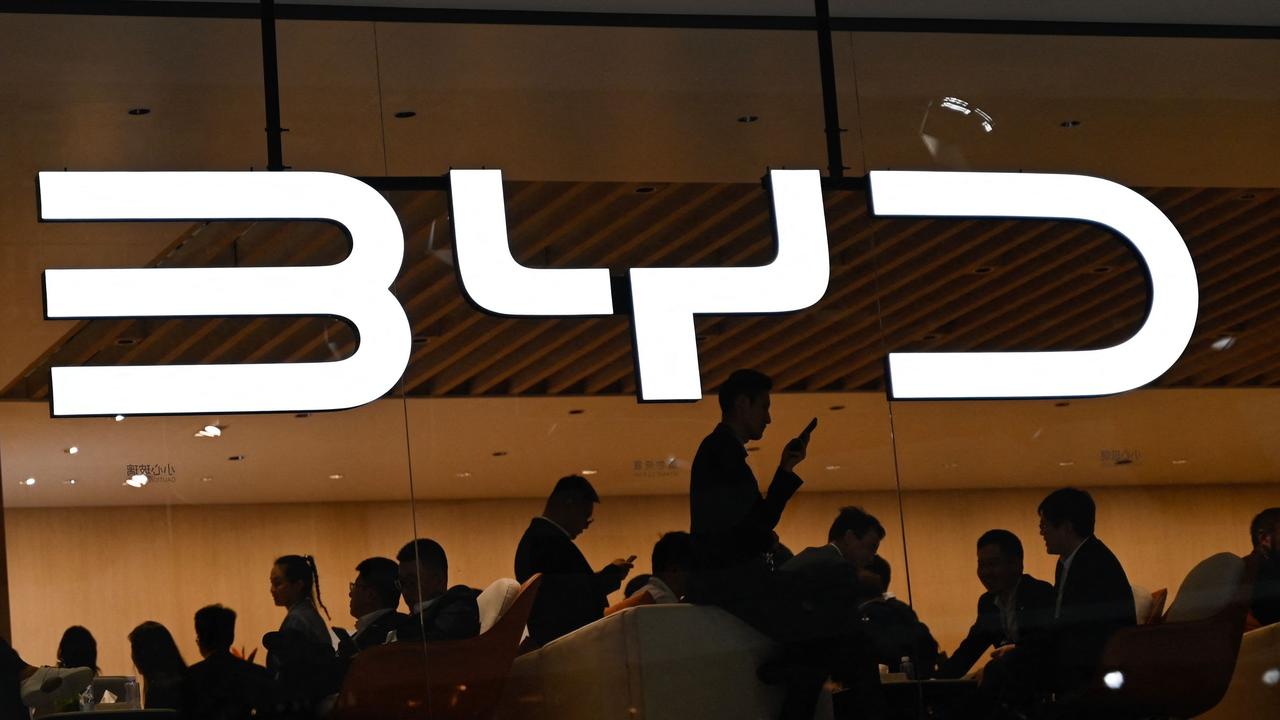
BYD is also planning on expanding its local workforce from 15 people to 70 by the end of the year.
“We want to employ more, and more local people, because they know the market, and they know the customer.” he said.
More Coverage
Despite the influx in Chinese EVs, Mr Costello said the wider car industry still has to work hard to convince Aussies to jump on the electric bandwagon.
“There was no doubt that there was an early adopter set in the Australian market that really wanted to have (an EV), and that’s a couple of 100,000 people. But the challenge that manufacturers are finding is now that we’ve sold EVs to these early adopters … how do we then convince everyday Australians to embrace the technology?”
“The challenge for the car industry is to convince people that this technology is proven, it’s safe, it’s reliable and it’s going to cut your costs.”






